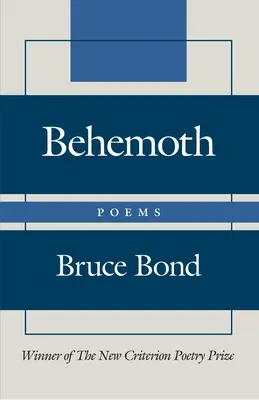Bruce Bond
(Author)BehemothHardcover, 5 January 2021

Qty
1
Turbo
Ships in 2 - 3 days
Only 1 left
Free Delivery
Cash on Delivery
15 Days
Free Returns
Secure Checkout

Print Length
72 pages
Language
English
Publisher
Encounter Books
Date Published
5 Jan 2021
ISBN-10
1641771445
ISBN-13
9781641771443
Description
Product Details
Author:
Book Format:
Hardcover
Country of Origin:
US
Date Published:
5 January 2021
Dimensions:
21.84 x
14.22 x
2.03 cm
ISBN-10:
1641771445
ISBN-13:
9781641771443
Language:
English
Pages:
72
Publisher:
Weight:
226.8 gm